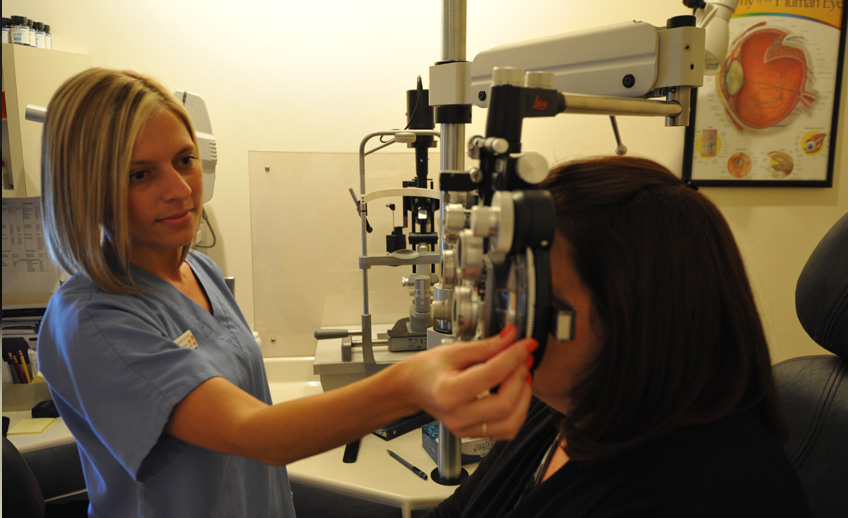Our Routine Eye Exams
Routine eye exams are an important part of good healthcare. In some cases, serious eye or medical problems are first discovered in a routine exam. In general, the earlier a potential problem is diagnosed, the better the prognosis for treatment. This is especially true of amblyopia (“lazy eye”) and strabismus (mis-aligned eyes) in children, and glaucoma in adults. Many eye problems are asymptomatic, or silent, and depend on a thorough eye examination for diagnosis.
For people between the ages of 18 and 40, a routine eye exam is recommended every 2-3 years to detect problems such as glaucoma and refractive errors. Eye exams are recommended every 1-2 years for people over age 40 when there is an increased prevelance of glaucoma, cataracts and other eye conditions.
Whenever there is a specific problem with the eyes or with the quality of vision, an ophthalmologist should be seen. This includes, but is not limited to, the following:
- decreased vision, even if temporary
- new floaters (“strings” or “specks” in the vision)
- flashes of light
- curtain or veil that blocks vision
- haloes (colored circles around lights)
- significant eye injury or eye pain
- bulging of one or both eyes
- crossed eyes
- double vision
- loss of peripheral vision
- diabetes mellitus
- AIDS
- thyroid-related eye problems
- family history of eye disease
Check with your insurance provider to see if routine eye care (when no problems are known or apparent) is covered. If you do not have coverage, you are responsible for the charge for your examination. If there is a medical reason for your exam, generally your medical health insurance will cover the examination. Check with your insurance provider to see if a referral from your primary care provider (PCP) to a specialist is required. Medical reasons for an eye examination are diverse. These may include dry eyes, eyelid lesions, allergies, conjunctivitis, vision changes due to cataracts, diabetes, hypertension, etc.

